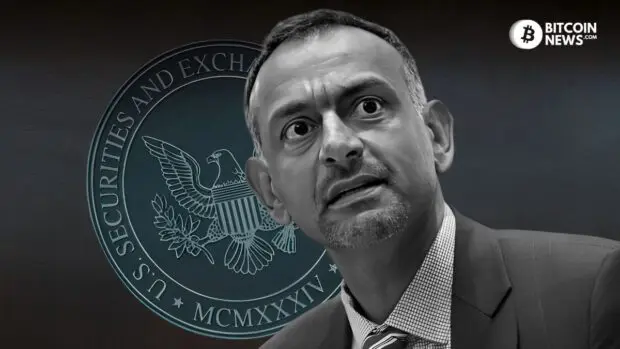Digital asset exchange Coinbase is embroiled in a heated dispute with the U.S. Securities and Exchange Commission (SEC) regarding clear regulations for the growing digital asset industry. The Coinbase SEC clash has escalated into legal battles, underscoring the need for definitive guidelines in the ever-evolving landscape of digital assets.
The Coinbase SEC Clash: SEC’s Refusal and Coinbase’s Response
The SEC’s reluctance to offer explicit regulatory frameworks for digital assets has triggered intense friction. Lawmakers and Coinbase alike have criticized SEC Chair Gary Gensler for the lack of clarity, which they argue creates chaos and hampers market stability. Gensler’s stance, asserting most digital assets as securities except Bitcoin, further fueled the discord.
Related reading: U.S. Chamber of Commerce Slams SEC for Regulatory Uncertainty
Coinbase sought clearer guidelines, emphasizing the necessity for specific regulations tailored to the digital asset space. The SEC’s rejection of this plea prompted Coinbase to announce plans to challenge this decision, intensifying the legal skirmishes between the exchange and the regulatory body.
After announcement of SEC’s decision by Gensler, Congressman McHenry shared his thoughts on X:
Congressman Tom Emmer, strongly criticized the SEC’s rejection of Coinbase’s petition. He expressed his discontent on the platform X by stating:
“The SEC’s policy to provide less clarity to the marketplace instead of more is designed to create chaos and it will corrupt our great capital markets. It is wrong and a clear violation of the SEC’s mandate.”
Legal Maneuvers and Allegations: Coinbase’s Stance Against SEC
In response to the SEC’s denial, Coinbase CEO Brian Armstrong viewed the situation as a small win for the digital asset industry.
SEC Alleges that assets like Cardano (ADA), Solana (SOL), and Polygon (MATIC) are securities, therefore Coinbase is at fault for facilitating their trading. However, Coinbase strongly disagrees with these claims, and believes the mentioned assets are not securities, and therefore, are out of SEC’s jurisdiction.
Impact Beyond Coinbase and SEC
This clash reverberates across the entire digital asset ecosystem, with profound implications for regulatory approaches in the United States and globally. The outcome of these legal battles could set precedents, significantly influencing how regulators oversee digital assets.
The industry’s urgent need for clear regulatory frameworks to nurture innovation and investor confidence is highlighted by this conflict. Without defined rules, innovation stagnates, hindering the growth of a healthy and sustainable market.
Seeking Clarity and Collaboration: Calls for Dialogue
Coinbase’s Chief Legal Officer, Paul Grewal, announced the exchange’s plans to challenge the SEC’s denial, citing the law’s ambiguity and the necessity for further regulation in the digital asset industry. Grewal emphasized the importance of collaboration between the SEC and industry players to create beneficial laws and rules that promote innovation and consumer protection.
He added:
“No one who fairly examines our industry thinks the law is clear or that there isn’t more work to do.”
Despite dissent within the SEC itself, with Commissioners expressing disappointment in the denial and calling for meaningful conversations, the legal battles persist. The disagreement primarily revolves around the classification of certain digital assets as securities, reflecting the broader struggle for clarity and regulatory consensus.
Gensler backs SEC’s refusal of Coinbase’s appeal; however, SEC commissioners Hester Peirce and Mark Uyeda dissented, declared jointly:
“In our view, the petition raises issues presented by new technologies and other innovations, and addressing these important issues is a core part of being a responsible regulator.”
Grewal replied on platform X:
“We are grateful that two Commissioners disagreed with the denial and called for real dialogue.”

Awaiting Resolution: The Future of Regulations
As the legal saga unfolds, the industry eagerly anticipates court rulings that could redefine the regulatory landscape for digital assets. This conflict signifies a critical juncture, illustrating the tension between traditional regulatory structures and the rapidly evolving digital asset realm.
The resolution of these legal battles not only shapes Coinbase’s future but also sets a precedent for how digital asset markets will be governed, impacting investor sentiments and regulatory strategies worldwide.
The clash between Coinbase and the SEC illuminates the pressing need for clear and adaptable regulations in the dynamic realm of digital assets. The outcomes of these legal battles hold the potential to mold the future trajectory of the industry, influencing how digital assets are traded, regulated, and perceived on a global scale.










